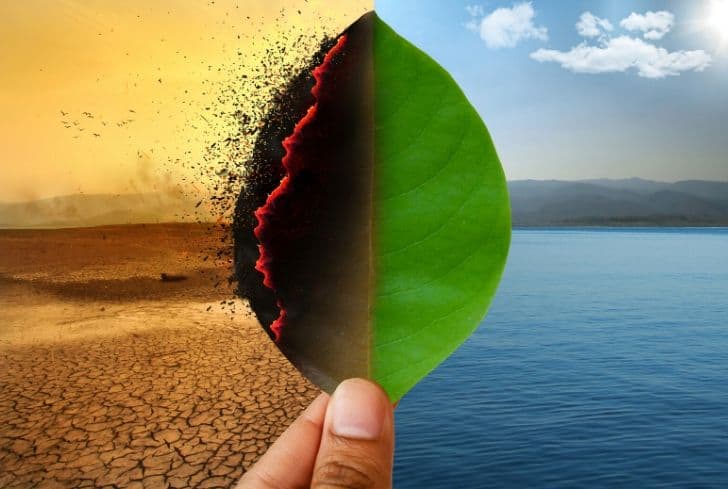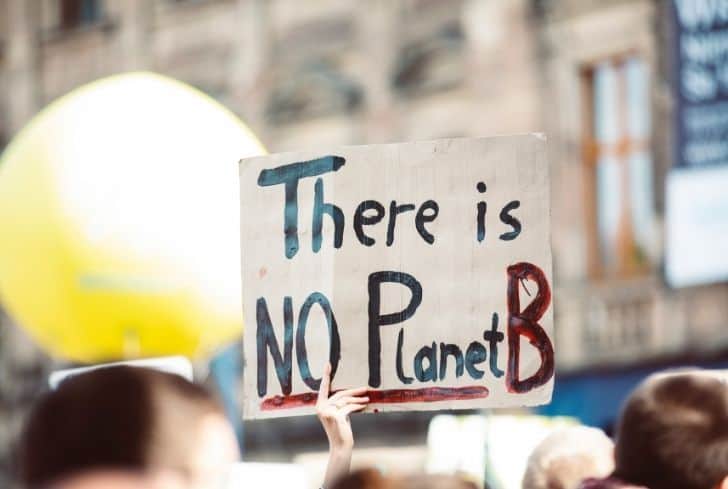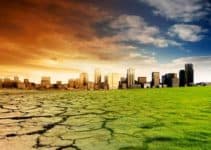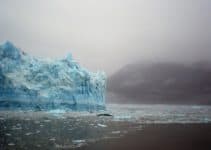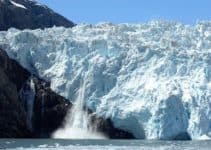Climate change is not limited to just study for scientist and researchers alone. Today even the common man wants to be extremely aware of the climate change effects and contribute the best way he can to save himself and the earth at large. Here is what you can learn all about climate change – from facts to prevention.
What is Climate Change?
Due to the combustion of fossil fuels, the concentration of carbon dioxide and other greenhouse gases in the atmosphere has been increasing alarmingly. All these gases have been present in the atmosphere to keep this planet warm for the existence of human life. Since the last few decades and mostly due to the industrial revolution, the presence of these gases in the atmosphere has accumulated steadily, resulting in an enhanced greenhouse effect.
As a result, the world’s average surface temperature has increased by around 0.6 degrees Celsius over the last 100 years. The changing climate patterns have already made a significant impact on our planet. Melting of polar ice caps, change in rainfall patterns, increase in the frequency of hurricanes, storms are a few of the adverse effects of climate change. Scientists predicted that due to ongoing activities contributing to global warming, the average global temperature could increase between 1.4 and 6 degrees Celsius in the 21st century.
Below are 50 Mind-blowing Facts About Climate Change
Fact 1: The global temperature on an average has increased by 0.6 to 1 degree Celsius till the 20th century.
Fact 2: The United States constitutes 5% of the world population and contributes to 22% of the world’s carbon emission.
Fact 3: Around 15% of the carbon released in the environment is due to deforestation and change in the use of land.
Fact 4: The golden Toad is the first species to go extinct due to climate change.
Fact 5: In recent times, half of all amphibians are at risk of extinction due to climate change. Many argue that extinction is a natural phenomenon, claiming about five species per year. However, some experts suggest we’re in the midst of the sixth mass extinction caused mostly by human activity.
Fact 6: Vehicles like cars and trucks contribute to 20% of carbon emissions in the United States.
Fact 7: Air conditions and heating elements consume 50% of electricity in America.
Fact 8: Hurricanes, droughts and coral deaths are a few of the natural disasters caused due to climate change.
Fact 9: Maria. Irma. Harvey. Sandy. Katrina. Andrew-hurricanes are reaching new extremes for climate change. The frequency of more intense hurricanes ranked as categories 4 and 5 has increased over the last 30 years. Increasingly destructive hurricanes are putting a growing number of people and structures at risk, and it has become immensely more difficult to escape these storms unscathed.
Fact 10: Climate change enhances the spread of pests that causes life-threatening diseases like dengue, malaria, Lyme disease etc.
Fact 11: The hottest years have been experienced from 1990 till 1997. The warmest years have been since 2005.
Fact 12: 20 of the warmest years on record have occurred in the last 22 years, as stated by The World Meteorological Organization (WMO), compounding the research released in the 2018 IPCC report.
Fact 13: The world’s five warmest years have all occurred since 2015, with nine of the 10 warmest years occurring since 2005, according to scientists from NOAA’s National Centers for Environmental Information (NCEI).
Fact 14: NASA scientists, who conducted a separate but similar analysis, concurred with NOAA’s ranking. NASA also found that 2010-2019 was the hottest decade ever recorded.
Fact 15: Scientists from the United Kingdom Met Office determined that 2019 was one of the top three hottest years on record, and the World Meteorological Organizationoffsite link also ranked 2019 second warmest for the globe.
Fact 16: The number of climate change-related incidents has increased fourfold between 1980 and 2010.
Fact 17: Land use change and deforestation contribute to 15% of carbon emission every year.
Fact 18: The climate change scenario was much stable before the industrial revolution and had been rapidly changing since then. Today the reality is that climate change is going to get worse than yesterday.
Fact 19: A separate budget of US$ 40 million has been allotted for climate change research since 1990.
Fact 20: Due to the greenhouse effect, the average temperature of the earth is 15 degrees rather than -18 degrees without the greenhouse effect.
Fact 21: Carbon dioxide constitutes only 3.6 % of total greenhouse gases, out of which 0.12% is attributed to human activities.
Fact 22: Carbon dioxide is not the only contributing gas to climate change. Other gases like methane and nitrous oxide are far more dangerous than carbon dioxide alone.
Fact 23: The UN Intergovernmental Panel on Climate Change (IPCC) is a leading body fighting against climate change. This body is a political organization, however, and not a scientific body.
Fact 24: The Kyoto Protocol, an organization formed to analyze and fight against climate change, will cost more than 100 trillion dollars, thus making developing and underdeveloped communities to participate.
Fact 25: According to the World Food Program (WPF.org), by 2015, the number of people affected by climate change disasters could reach 375 million per year.
Fact 26: Over the last 50 years, the concentration of carbon dioxide in the atmosphere has increased by 30% due to the burning of fossil fuels and greenhouse gas emissions like carbon dioxide, nitrous oxide and other gases, trapping more heat in the lower atmosphere.
Fact 27: The rising temperatures will cause more deaths due to a result of overheating or hyperthermia and rapid spread of deadly diseases. Also, the growing number of people in cities and an increasing population of elderly have increased heat-related deaths, according to a 2018 study in The Lancet.
Fact 28: Classic examples of climate change can be seen by the damages caused due to heavy rains and disasters like Hurricane Katrina in 2005.
Fact 29: Tropical cyclone rainfall rates will likely increase in the future due to anthropogenic warming and accompanying an increase in atmospheric moisture content. Modeling studies on average project suggest an increase in the order of 10-15% for rainfall rates averaged within about 100 km of the storm for a 2 degree Celsius global warming scenario.
Fact 30: Above 600000 deaths occur worldwide every year due to climate change. 95% of these deaths take place in developing countries.
Fact 31: Climate change can have serious health impacts such as heat stress, extreme cold, which can cause major deaths due to heart diseases.
Fact 32: In 2003, around 70,000 deaths occurred in Europe alone due to diseases caused by rising temperatures.
Fact 33: Pollen and aeroallergen high levels also lead to rising temperatures. This can cause asthma, which affects 300 million people worldwide.
Fact 34: Climate change is rapidly causing coastal flooding and displacement of people. Floods further cause major damages by injuring and killing people. They can even cause deadly diseases by spreading infection and vector-borne diseases.
Fact 35: Due to water shortages, the transportation of water will cause it to contaminate and make it even more deadly by spreading diseases.
Fact 36: Malaria, diarrhoea and malnutrition are diseases are water-borne diseases that have caused more than three million deaths since 2005; one-third of these deaths are in Africa alone.
Fact 37: Steps to reduce greenhouse gases can help save the negative health impacts. Promoting safe public transportation and active activities like walking or use public transport can help reduce carbon emissions. This can also help to cut down traffic, air pollution, and thereby reducing cardiovascular diseases.
Fact 38: The IPCC SR15 report found that limiting warming to 1.5°C above pre-industrial implies reaching net zero3CO2 emissions globally around 2050 and concurrent deep reductions in emissions of non-CO2 forcers, particularly methane.
Fact 39: Various countries have taken steps to reduce greenhouse gas emissions. This has led to positive health effects. Promoting green transportation and carpooling can help to reduce carbon emissions and improve public health.
Fact 40: Depending upon the carbon emissions, a rise in temperature from 1.1 degrees up to 6.4 degrees is expected by the end of this century.
Fact 41: The concentration of carbon dioxide (CO2) in our atmosphere, as of May 2020, is 416 parts per million, the highest it has been in human history, according to NOAA‘s Mauna Loa Observatory, an atmospheric baseline station in Hawaii.
Fact 42: Over the next 20 years, global warming is expected to increase by 0.2 degrees per decade.
Fact 43: The effects of climate change can have a disastrous impact on our planet Earth. High temperatures, loss of wildlife species, increase in sea level, changes in rainfall patterns, heat waves, stronger storms, wildfires and shrinking of arctic ice are few of the dangerous effects of climate change.
Fact 44: While instances of wildfires have decreased over the years, according to the WMO, the burn area and intensity of fires have increased. The year 2020 has seen unprecedented wildfires cause havoc across the world. Australia recently battled its largest bushfire on record, while parts of the Arctic, the Amazon and central Asia have also experienced unusually severe blazes.
Fact 45: Global sea level rose about 8 inches in the last century. However, the rate in the last two decades is nearly double that of the last century and is accelerating slightly every year.
Fact 46: Polar sea ice coverage continued its downward trend in 2019. Both the Arctic and Antarctic oceans recorded their second-smallest average annual sea-ice coverage during the 1979–2019 period of record. Both the extent and thickness of Arctic sea ice has declined rapidly over the last several decades.
Fact 47: Since 1969, the oceans have absorbed much of this increased heat, with the top 700 meters (about 2,300 feet) of ocean showing warming of more than 0.4 degrees Fahrenheit.
Fact 48: According to a recent report by Oxfam, climate change could push food prices by 50-60 percent more by 2030. The horrifying impacts of climate change are definitely nature’s way to indicate that the worse is yet to come. Human beings can be called ‘men of wisdom’ only if we are prepared and already taking action to save the world from such terrible effects of climate change.
Fact 49: Coastal cities are affected because of rising sea levels caused by climate change. Indonesia is moving its capital city away from Jakarta, according to the country’s planning minister. Jakarta, home to over 10 million people, is also one of the fastest-sinking cities in the world.
Researchers say that large parts of the megacity could be entirely submerged by 2050. North Jakarta sunk 2.5m (eight feet) in 10 years and is continuing to sink an average of 1-15cm a year.
Fact 50: Nature is an untapped solution for climate change. Restore nature.
The horrifying impacts of climate change are definitely nature’s way to indicate that the worse is yet to come. Human beings can be called ‘men of wisdom’ only if we are prepared and already taking action to save the world from such terrible effects of climate change.
References:
